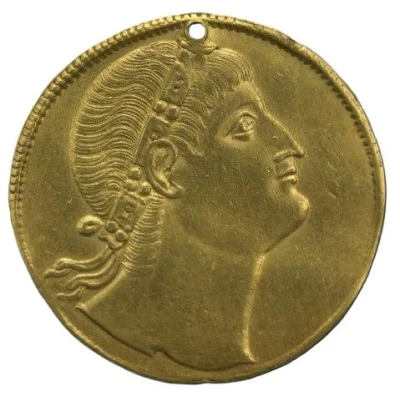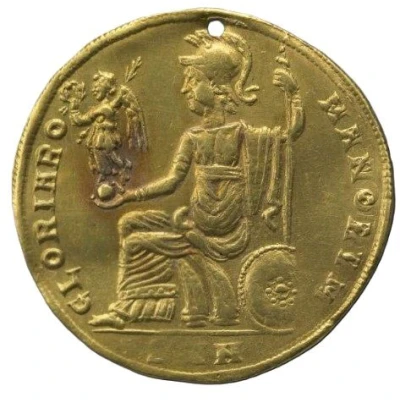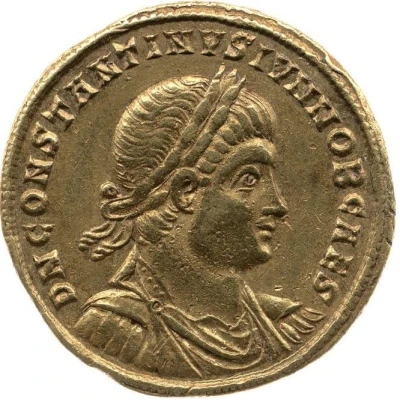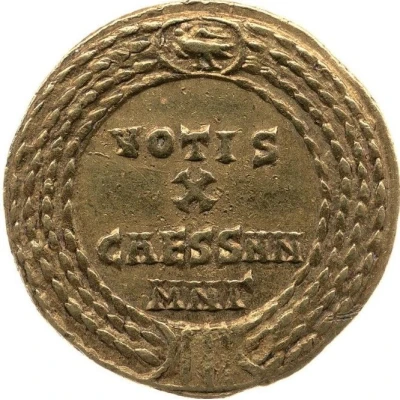


2 Solidi - Constantinus I GLORIA ROMANORVM; Nicomedia
327 year| Gold | 8.14 g | 28.5 mm |
| Issuer | Rome › Roman Empire (27 BC - 395 AD) |
|---|---|
| Emperor | Constantine I (Flavius Valerius Constantinus) (306-337) |
| Type | Standard circulation coin |
| Year | 327 |
| Value | 2 Solidi |
| Currency | Solidus, Reform of Constantine (AD 310/324 – 395) |
| Composition | Gold |
| Weight | 8.14 g |
| Diameter | 28.5 mm |
| Shape | Round (irregular) |
| Technique | Hammered |
| Orientation | Variable alignment ↺ |
| Demonetized | Yes |
| Updated | 2024-10-04 |
| Numista | N#389409 |
|---|---|
| Rarity index | 100% |
Reverse
Roma, helmeted, draped to feet, seated left on cuirass, holding Victory, winged, draped, standing left, holding wreath up in right hand and palm, sloped to right over right shoulder, on extended right hand, and vertical sceptre in left: to right, on ground, shield.
Mintmark in exergue.
Script: Latin
Lettering: GLORIA ROMANORVM
Comment
Gold medallion, pierced for suspension.
Constantine’s coinage indicates the adoption of the diadem in AD 324. It first appeared in its classical Greek form as a simple cloth strip – one of a number of borrowings by the regime from the iconography of Alexander the Great. As this medallion illustrates, it quickly develops into jewel-encrusted regalia.
The upward glance of the head, with its straining neck, is another quotation from Alexander images. In a Constantinian context the image was re-interpreted as the emperor in the orans position of early Christian prayer with up-cast face. This ‘praying Constantine’ coin design is mentioned in the contemporary writings of Bishop Eusebius (Vita Constantini IV, 15).
British Museum
Interesting fact
One interesting fact about this coin is that it features the first Christian emperor, Constantine the Great, who ruled the Roman Empire from 306 to 337 AD. The coin's design includes the emperor's portrait and the inscription "GLORIA ROMANORVM" (Glory of the Romans), which reflects the shift in power and influence from the traditional Roman gods to the new Christian faith. This coin is a rare and valuable example of early Christian numismatics and a significant piece of history.

